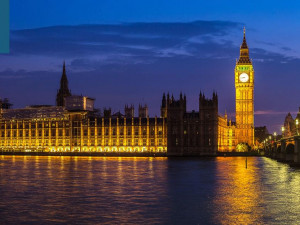
Truss’s promises akin to fantasy
Morning mid-market rates – The majors
28th July: Highlights
- UK set for slowest G7 growth in 2023
- Another hike is predicted to send economy into recession
- Gas prices soar as Russia cuts supply
GBP – Sunak’s supporters hit back at rival’s projections
With Rishi Sunak continuing to trail Liz Truss in polls of Conservative Party members, the best they were able to come up with yesterday was to label her economic programme as fantasy.
It is true that Truss’s promise of tax cuts and where the funding for them will come from does appear to be based some distance from reality, but it would be more beneficial to attack the policy rather than the person.
Truss’s plans to channel her inner Thatcher and face striking unions head on has drawn stinging criticism of deliberately creating confrontation with rail workers leaders and the threat of General Strike.
There was another one-day strike by rail workers yesterday and a vote that action will continue for as long as it takes. Even though the rail network has been privatized, the Government is still pulling the strings with funding and support linked to not just performance but control of expenditure.
Amongst all the talk of recession, it should be a cause for celebration that the UK economy is set to grow by just 0.5% in 2023, and that is predicted to be the slowest rate in the G7.
It is said that there are lies, damn lies and statistics, and predicting levels of growth for next year should be considered in that vein. The unpredictable nature of the current downturns in activity, seen throughout the group, mean that any forecast will be built on shifting sands.
Vladimir Putin continues to seek vengeance for the sanctions that have been placed upon Russia in retaliation for the Russian invasion of Ukraine. The wholesale price of gas soared yesterday as the supply of gas was reduced, ostensibly due to the need for important maintenance, which is about as believable as the growth statistics for next year.
Further predictions see the annual cost to an average household for energy to rise to close to four thousand pounds this winter.
The pound gained yesterday despite the Federal Reserve raising short term interest rates by seventy-five basis points for the second consecutive time.
Sterling climbed to a high of 1.2186 and looks likely to string resistance at 1.2200 as the Fed’s likely next move is considered. It closed at 1.2156.
Recommend our services and earn up to £75 per successful referral
USD – Fed Funds rate reaches neutral
This was considered at the start of the current round of hikes to be the neutral rate at which the Central Bank is neither supporting the economy nor attempting to dampen demand.
He remained confident in his remarks following the meeting that the programme of rate hikes is succeeding in at least slowing the pace of rising inflation, even if it hasn’t yet begun to be instrumental in bringing the core down.
There are just three meetings left to take place this year, with the next taking place on 20th September.
Powell’s comments were less hawkish than had been feared by the markets even though he is adamant that the economy is not in recession, although he did concede that the actions taken by the FOMC have certainly slowed growth down.
Powell was more circumspect in his advance guidance about further hikes than he has been recently. He limited himself to saying that the FOMC considers ongoing increases may be appropriate. The cooling-off period provided by the gap in the meeting schedule will push the Central Bank to be more data driven.
Data released this week has shown the effect of the first seventy-five-point hike and the effect of this latest one is expected to be even more stark.
The Dalles Fed Business index fell to -22 from -17 previously, while new home sales plunged from 657k to 590k. This meant a rise of 6.3% in May turned into a fall of 8.1% in June.
The market is concerned about Powell’s affirmation that the economy is not in recession, and neither will one be confirmed this quarter. His credibility is still a little shaky following his transitory inflation remarks a year ago.
The comments for the Fed Chairman buoyed stocks, which saw the Nasdaq lead the way higher. It felt like traders were awaiting further encouragement following the recent news that the recent fall in subscribers to Netflix and other such channels had been averted.
The dollar reacted differently, confirming the view that its most significant driver was the anticipation of a further widening of interest rate differentials. It may be that the Fed may pause in September while both the ECB and BoE continue to hike.
The dollar index fell to a low of 106.17, closing at 106.30 as reports of its collapse proved unfounded and support remains around 106.20.
EUR – Recession is already happening
The region will bear the brunt of the reduction in supply of gas initiated by Russia, which spuriously claimed that essential maintenance was taking place on the vital pipeline that supplies gas to Germany had led it to reduce supplies.
While the price of gas rose again, it is the fact that there is less available and no chance to replenish stocks before winter that will concern Germany and eventually the entire region.
Major U.S. Bank J.P. Morgan downgraded its view on the eurozone economy yesterday, saying that if the region isn’t already in recession, it believes it certainly will be in the coming months.
Despite this threat, the ECB is now faced with continuing the path it has chosen to fight inflation.
A further fifty-point hike is expected in September, with the hawks now in control. There has been little talk of stagflation recently, but its shadow remains over the Eurozone. With rising inflation unlikely to be quelled by a single rate hike and the economy on the brink of stagnation, it is hard to see it being avoided.
IT is hard to escape the spiral of higher inflation and lower growth once it begins, and given the differing fiscal policies adopted by the various Eurozone members, it is hard to see what options the ECB will have to avert it.
Confidence data will be released later today, and it is hard to see anything other than a further deterioration which will add to the pressure on the currency.
The euro received some relief from yesterday’s fall in the dollar index. It rose to a high of 1.0220 but remains capped around 1.0230/40.
It eventually closed at 1.0207, although sellers are beginning to gather momentum for a more radical attack on parity against the dollar.

About Alan Hill
Alan has been involved in the FX market for more than 25 years and brings a wealth of experience to his content. His knowledge has been gained while trading through some of the most volatile periods of recent history. His commentary relies on an understanding of past events and how they will affect future market performance.”



